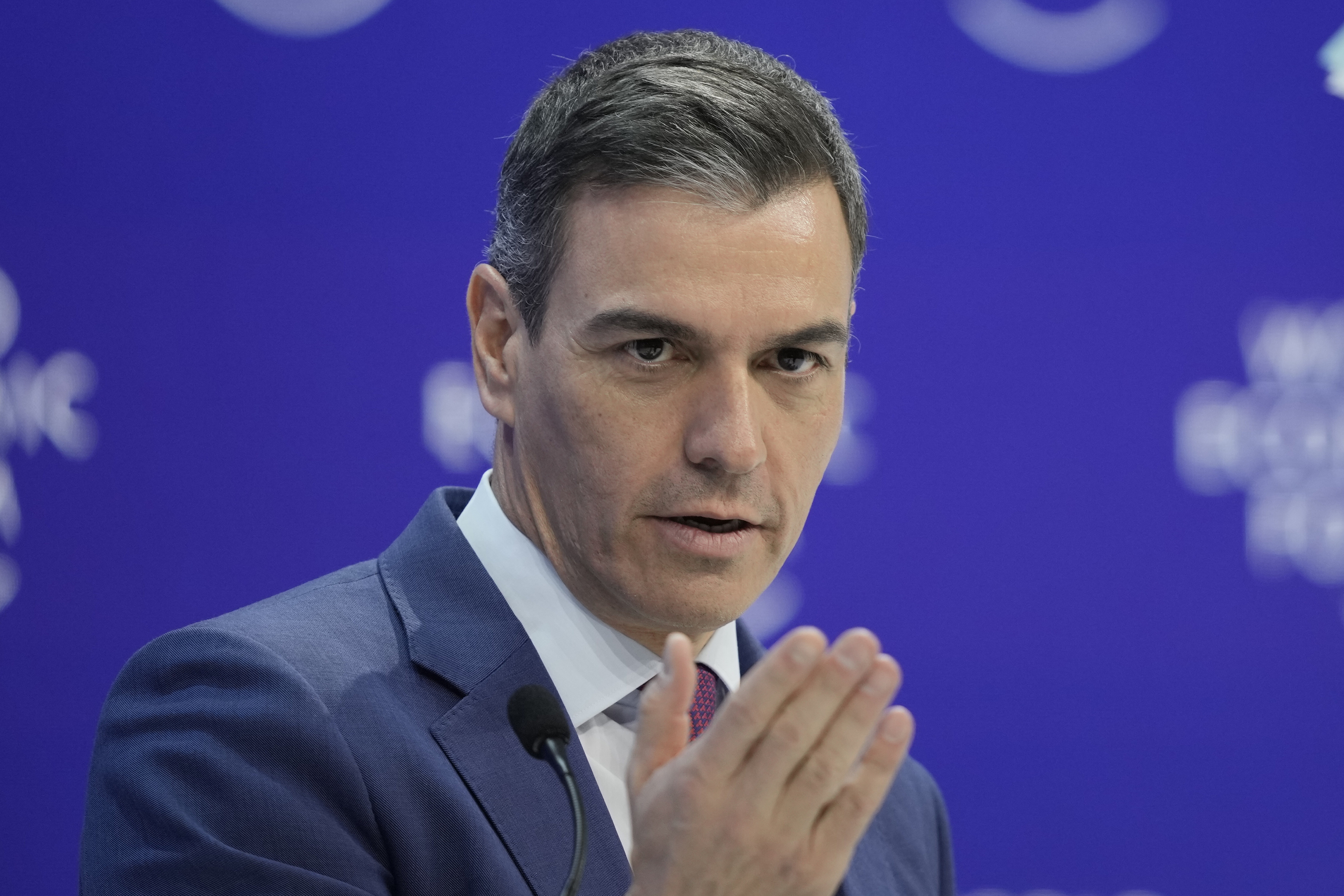A black hole is an astronomical object with such a strong gravitational force that nothing, not even light, can escape from it. This is how NASA defines it. China is a sort of black hole for Spain: it cannot escape from it because it needs to maintain a commercial relationship with the Asian giant, it exerts a powerful attraction, especially after the trade war driven by Donald Trump, but it urgently needs to rebalance a very unbalanced scale - China accounts for almost the entire trade deficit of Spain - and eliminate obstacles to the sales of Spanish companies and products.
On Monday, Sánchez begins a mini Asian tour with stops in Vietnam and China. It will be the third time in the last three years that the President of the Government meets with the Chinese President, Xi Jinping, making the head of the Executive a privileged interlocutor with the Asian giant. The main idea defended by the Spanish leader is the need for Spain, and therefore Europe, to diversify their alliances with other regional blocs. What is advocated in La Moncloa is that the EU needs to open up more markets, especially now after the upheaval caused by Trump, and in this context, strengthening relations with China becomes more important.
But the black hole is significant. The purpose is not simple. According to official data, in 2024, Spanish imports from China totaled 45.174 million euros, while Spanish exports only reached 7.467 million. In other words, a coverage rate - the ratio between exports and imports - of only 16.5%. Government sources estimate that China alone represents 70% of our trade deficit. However, official data point to a slightly higher figure: according to the Ministry of Economy, the trade deficit of our country last year was 40.276 million. If the imbalance with China is 37.707 million, it means that it accounts for 93.6%.
More data. In 2022, China's investment position in Spain amounted to 11.347 million; Spain's position in China was 4.761 million.
Sánchez's visit to Vietnam and China has a clear economic component. Government sources explain that it is not a trip against anyone, but it does aim to boost Spanish sales in this region, as well as facilitate the investment of Asian companies in Spain. Because everything requires slow and steady work. An example. Negotiations for the export of Spanish almonds to China began in October 2017, while those related to the export of fresh Spanish persimmons started at the end of 2016. The phytosanitary protocols that will allow the export of these products were signed in March 2023. As admitted by the Government, it is not an easy country where reconfiguring processes requires years.
Another practical example. The Government was able to hear complaints from the cosmetic sector, as well as the pharmaceutical sector, about the difficulties they faced in penetrating the Chinese market. Work has been done with them, and it is expected that a specific protocol will be signed to facilitate the presence of cosmetic companies in this country. According to government sources, these are examples of the usefulness of these types of trips. On this occasion, one of the sectors that is being focused on is the pork sector, of great interest to the Government, for which they want to smooth the way into this market by trying to streamline conditions.
Precisely, Sánchez is accompanied on this trip by Luis Planas, Minister of Agriculture, Fisheries and Food, and José Manuel Albares, Minister of Foreign Affairs. Their presence underscores the importance that China has for diversifying the exports of the agricultural sector, especially now after the scenario that is shaping up following Trump's onslaught, with the primary sector being one of the affected.
Thus, on this trip, Sánchez aims not only to strengthen a high-level bilateral relationship in political terms but also to streamline, if not eliminate, administrative barriers and the various existing difficulties for doing business and establishing oneself in the country.
"Regarding Spanish investment flows in China, the existing restrictions on service provision and access barriers to foreign capital limit the entry of Spanish companies into the Chinese market," details a report from ICEX prepared by the Economic and Commercial Office of Spain in Beijing. In the first half of 2024, Spain's sales to China were dominated by chemicals (1.978 million). Also noteworthy were ores and minerals (1.623 million), as well as meat products (1.104 million) and capital goods (978 million).
In this effort to facilitate the investment and sales of Spanish companies, as well as attract money to Spain, Sánchez will meet with both Spanish companies in Vietnam and China, as well as with Chinese investors, and will participate in a business forum in Ho Chi Minh.
Last November, during his visit to Spain where he met with the King and Sánchez, the President of the Standing Committee of the National People's Congress (NPC), Zhao Leji, promised to expand cooperation in economy, trade, investment, culture, and tourism, highlighting the potential for further advances in areas such as electric vehicles, clean energy, advanced materials, green and digital economy. He also emphasized the need to establish a fair, safe, non-discriminatory, and predictable business environment for companies.
Sánchez clings to this willingness to see Spain as a reliable ally and partner to strengthen ties with China while considering the loosening of those that bind Spain with the US.
